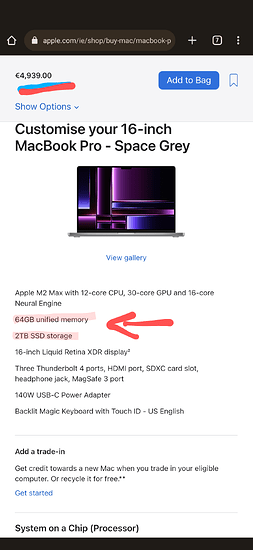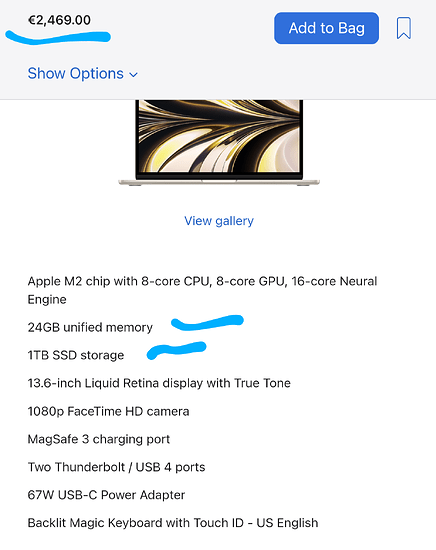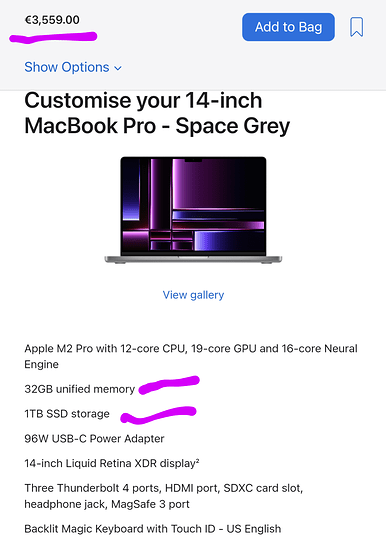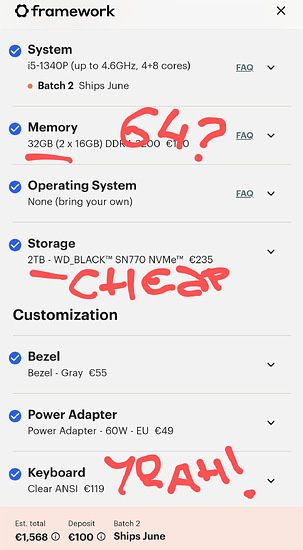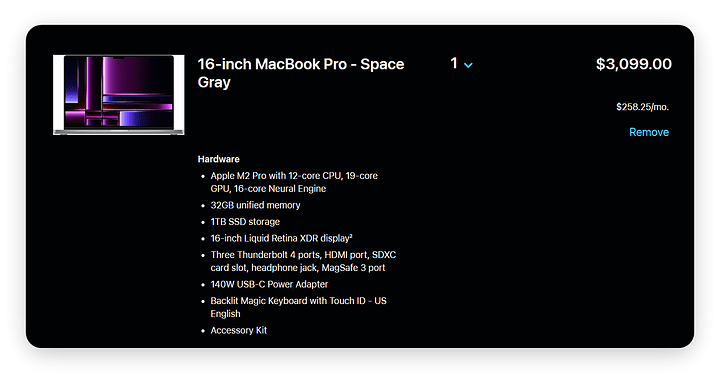Hello! If all goes well, I’ll probably be in college in a few months and plan to buy a laptop for that by December. However, I’m kinda torn on which laptop to go for.
My rationale for an Apple Silicon Mac is that:
- The battery life is extremely great, which would probably be useful in college.
- I’m pursuing a major in CSE, so I assume the compile times would help too.
- It’d complete my OS trifecta (I already have a Windows laptop and run a Linux homeserver with a GUI, because it’s cool to be able to use it as a backup desktop alongside running everything in docker), which would keep me updated on all three OSes.
- I really like good GUIs.
- I’d get to play around with Linux on ARM, like Asahi.
- I’d effectively have a device to test ARM stuff on as well.
Cons for an AS Mac:
- It’s Apple. I don’t know if I want to support them.
- It’s near unrepairable.
- No upgradibility in terms of storage and memory. If that fails, the laptop is dead.
- Apple’s new sleep sensor (which is a calibrated Angle sensor now, instead of a hall sensor) can’t be replaced by (most) third party repair.
My rationale for a Framework Laptop 16 is that:
- It’s super repairable, and represents a lot of my beliefs towards the direction computer hardware should be heading.
- I’ll go full-x86 Linux on a mobile device for the first time. Probably Zorin or Arch.
- I can game on it.
- The modularity can be insanely nifty in multiple environments, where I can just print and modify ports to work with a lot of legacy hardware.
- Easily upgradeable to extend the lifetime of the device.
Cons for the FL16:
- Late release date.
- I’m not in an officially supported country, so getting parts might be tough even if I buy spare ports.
- Losing out on completing the OS trifecta.
I already have a Windows laptop, but it’s a gaming one which I don’t wanna daily in college simply because it will be cumbersome to use. I’m a bit conflicted because I’m very pro-OSS and repairability. That said, Framework is my only consideration in the non-Mac space. I have used MacOS in the past, right up to Catalina.
I’d be grateful for your advice!
